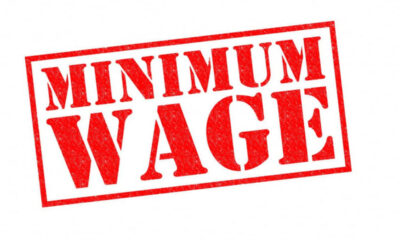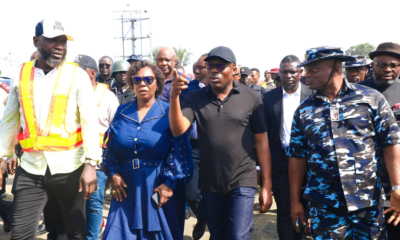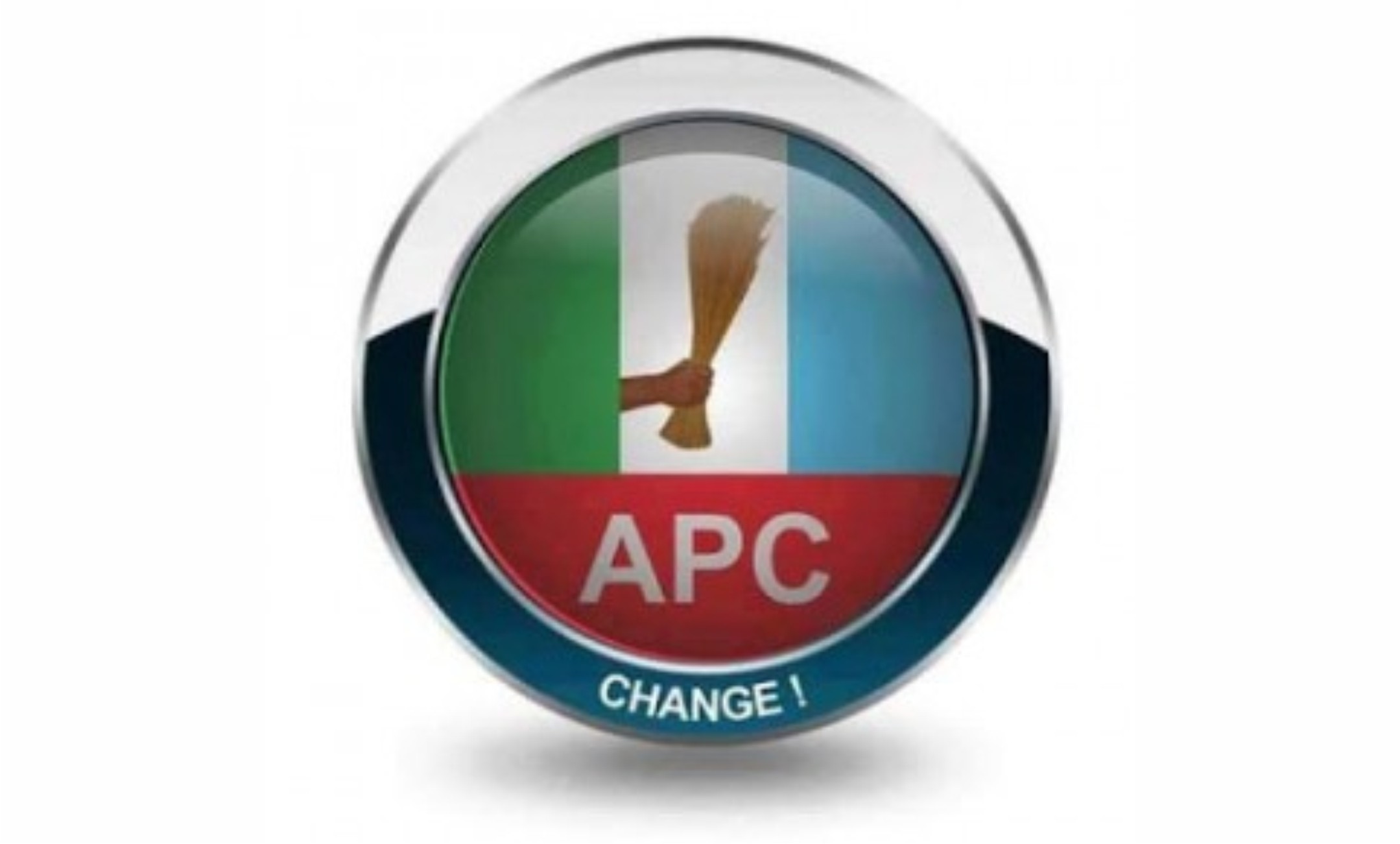Opinion
Our Bullion Van Democracy
The process of decline and degeneration of human societies usually follow certain patterns, one of which is the hysteria and clamour of the masses who are often myopic. Mass hysteria usually comes about through working up sentiments and passions of the “madding crowd” by some interest groups. Mischief mongers know this psychology of mass hysteria and then use it as a means of causing social derailment. This pattern of social mischief is not new but an ancient one, ranging from the clamour for “crucify Him”, to a Nazi war cry: “Fuhrer, command, we will follow you”. Hysteria bears little or no conviction!
The doctrine of social and cultural dynamics, propounded by Professor Sorokin, states that the rise and fall of nations and power structures follow some definite patterns. One of Sorokin’s theories is that getting to the top of might and power is easier than sustaining the status and position; rather, hubris is an indicator that a sad decline would follow. Hubris is not just great and unreasonable pride, but it takes various clever guises, including clownish humility or obsessive paranoia. The pressure of positions of power usually bring about some strange mental aberrations.
Power is not usually an individual affair, even in a monarchy. In the modern times, getting to power demands the utilisation of mass hysteria as well as the building up of a power structure, via the aid of a cabal or influence peddlers. What political parties do in a democracy is usually the building up of some power structure and buying the support or loyalty of the masses, even if it is fake and hypocritical.
In a polity devoid of strong ideologies, exploitation of mass hysteria is usually the strategy which serves as gateway to power. One of the ready strategies used to create a crowd ready for exploitation is a political economy which institutionalises mass hunger, want and social deprivations. Thus “stomach infrastructure” has come to be a common political slogan in the service of political power game. Thanks to “money bags and godfathers”, the politics of stomach infrastructure has come to be a common practice in Nigeria.
Former Deputy National Chairman of the Peoples Democratic Party (PDP), Chief Bode George, was recently quoted as congratulating the people of Edo State for rejecting what he called bullion van democracy. The Tide newspaper of Monday, September 21, 2020, captioned that news as “Obaseki’s Victory: Edo People Rejected Bullion Van Democracy- Bode George”. Obviously, the idea of bullion van has to do with delivery of large sums of money, but in relation to democracy, it is not delivery to or from banks, but to influence elections. According to Chief George, Edo people were “bold and brave” enough to reject “bullion van democracy and outside interlopers”. Bullion van democracy is an exclusive cult of money-bags.
By “outside interlopers” Chief George meant “undemocratic forces” whose dark schemes and intrigues pervert democracy via the use of “bullion van” strategy. Such outside interlopers or undemocratic forces succeed in their schemes through the use of the malleable crowd as well as other agencies via the use of the “good soldier” that money is. Bullion van is synonymous with money while interlopers may include powerful godfathers.
Sorokin’s theories of social and cultural dynamics included the fact that money, apart from being a good soldier, is also a lubricant which makes the decline of a society possible. Money as a lubricant usually facilitates corrupt practices and consequently the fall and decay of kingdoms and power structures. Therefore, bullion van democracy is an idiom in Nigeria’s political economy, the same way “stomach infrastructure” points towards the use of hunger and poverty as means of making the hungry masses politically malleable.
Maslow’s theory of the hierarchy of human needs recognizes the prepotency of lower or basic needs which are usually of greater concern to the masses. There is no way that a poor and hungry man would show great concern on abstract ideals of democracy when a bullion van democracy addresses his stomach infrastructural need. So, power-hustlers and wheeler-dealers in god-father politics are expert psychologists in dealing with the poor and hungry masses. Coupled with the level of illiteracy and ignorance in Nigeria, it is doubtful if the masses can hold strong personal convictions and commitments on ideologies of democracy.
Higher needs having to do with self actualisation and nobler strivings and values, often come after basic needs of survival in a hostile world have been satisfied. Higher demands of an ideal life which democracy seeks to facilitate, are not the prepotent needs or concerns of the poor masses. This is where the doctrines of stomach infrastructure and bullion van democracy come in, which provide ample strategies for the patrons of politics of gangsterism -a do-or-die activity of money bags.
Bullion van democracy is the politics of the stomach, whose patrons are power merchants and whose foot soldiers are the hungry masses. Politics of the stomach represents politics of anti-democratic forces whose concern is crude power, fired by greed, avarice and material goals. Its strategy is the use of money to buy the crowd, via the use of gangsters. It is obvious that in an environment where a larger majority of the population are poor and ignorant, the use of gangsters and money can subvert the ideals and choices of a minority class of articulate citizens.
Masters of this strategy of using force, money and cunning to grab political power in a democracy are the anti-democratic forces who are usually powerful and rich persons. They include godfathers or sponsors of political aspirants, influence peddlers who also constitute a cabal or faceless powers behind the official power holders, and men of brute force who can be hired to carry out gangsterist operations. There are usually mercenaries in every society and in every sphere of human activities who can carry out dirty and dangerous jobs for a fee, without any obtrusion of the conscience.
Bullion van democracy as an idiom goes further to serve as an indictment on the political class and power merchants. One of the antics of politicians is to point fingers at the malfeasance of their rivals even when they engage in worse practices. Even though “Bullion van democracy” was coined with reference to the last Edo State election, it is obvious that the practice had been there long before now.
Dr. Amirize is a retired lecturer from the Rivers State University, Port Harcourt.
Opinion
Other Sides In Junior Pope’s Death

The tragic boat mishap of Wednesday, April 10, 2024, which claimed the lives of popular Nollywood actor, Mr John Paul Obumneme Odonwodo, popularly known as Junior Pope, and four others, has sent shock-waves across the Nigerian movie industry, and set the social media buzzing with reactions.
A contingent of 12 movie crew members had set out for a boat journey from the River Niger Cable point, a waterside jetty at Asaba in Delta State, to cross to the other side of River Niger, into Anam, a riverine community in Anambra State, for the shooting of a movie set titled ‘Another side of Life’ produced by Adanma Luke. Unfortunately, a series of avoidable events culminated the journey into an ill-fated expedition that sent fives lives to ‘the other side of life.’ The incident made the movie’s eventual ban a nullity, having played-out its symbolic meanings in real life while in the making, rather than on envisaged screens.
An avoidable incident, it exposed our society’s casual attitudes towards marine and general safety, as well as our endemic superstitions, while telling, on several flaps, other side tales of reality in the accounts of what transpired during the production, or rather, play of Adanma’s ‘Another side of Life.’
While veteran actor and Senior Adviser on Military Relations to the President of Actors’ Guild of Nigeria, Mr Steve Eboh, claimed he missed joining the ill-fated boat because he arrived too early before the crew, and had to go back, the producer, Adanma Luke, claimed she missed it because she came too late.
A journey’s jolly take-off from Asaba, Delta state, which ended tragically in its return from the other side in Anambra State, proved to be a rascally journey that showed the other side of rascality, even as T. C. Okoye claimed that pre-performing of obeisance to some marine spirits saved his life. But it was T. C. Okoye who had to hang unto a boat’s anchor in the face of death, rather than rely on the powers of the spirits he had appeased with Fanta, to await rescue from mortal men – sensible men, whose advise that one needs wear life jack during marine journeys – he had forsook, yet gave glory to his rituals after rescue.
Conversely, one may flip the flap to consider the other side of T. C. Okoye’s rituals to ruminate on other possibilities. Could the ringing of bells, spraying of money and snacks, and pouring of Fanta, have evoked the anger of the ‘marine spirits’ as rumoured, or distracted the boat driver, to the point of accident? And as reported by The Punch, what’s the significance of T. C. Okoye ‘dashing’ ritual money to innocent children whom circumstance made to be by the riverside?
Also, the argument by Mr Steve Eboh, that “If the star actors in that boat had wanted to wear life jackets, they would have been given the jackets” holds no ground, because the guild, as well as all the marine transport stakeholders, should have enforced strict safety compliance by all voyagers. It is therefore commendable that the Anambra State Commissioner of Police, Aderemi Adeoye, has ordered exhaustive investigations into the matter to determine criminal liability of all persons involved.
However, in the melee of pandemonium that accompanied rescue efforts, Nollywood celebrities, our society’s supposed role models, prioritized superstitious rescusitation over sure medical practice, rushing victims between spiritualists and hospitals, until a ‘pope’ whose work and journey had bound with the superstitious, died amidst superstition. Indeed, it’s during crises, when people care less about ‘packaging,’ that truth and the real personality of humans stand bare and naked.
While medical personnel who got their chance late had certified Jnr Pope dead, our star-persons held unto their spiritual advisers who claimed his spirit coming back to life, up until reality finally dawned that pope’s spirit has permanently crossed to the other side of life.
Regrettably, the reality has not fully dawned, otherwise three corpses shouldn’t have been buried by the riverside as dictated by spiritualists, and Jnr Pope’s family shouldn’t be worried about what would happen, as rumoured threatened of his three children, if his corpse is not buried by the riverside. However, it appears that having encountered the influence of a frontline celebrity, the spirits have turned capricious by bending divinely demands to accepting two cows, as rumoured, in exchange for Jnr Pope’s corpse being buried elsewhere.
According to the Anambra State Police Public Relations Officer, SP Tochukwu Ikenga, a team of rescuers comprising men of the Anambra State Marine Police Command, the National Inland Waterways Authority (NIWA) and the Maritime Workers Union of Nigeria, with the aid of fisher men, rescued seven persons alive to the Anambra side, while two retrieved corpses were sent across the other side, to the Delta State Marine Police Command jetty where Nollywood officials stood waiting. Of other three victims, two corpses were rescued next day, while a third was thrown out by river tides, all of whom; Abigail Fredrick (Vice Chairman of Costumer Designers Guild of Nigeria, and Akwa-Ibom State-born make-up artist), Precious Oforum (Sound engineer) and Joseph Anointing (Gaffer), have since been buried by the riverside, according to local belief.
However, what the police PRO’s statement didn’t reveal is if Jnr Pope’s corpse was sent to the other side in Delta after all the back and forth between spiritualists and medical personnel within Anambra, or if it was sent straight upon rescue to Delta state, but mysteriously found its way back to Anam, on the Anambra side.
It’s unfortunate that Nollywood which set out in its early days to expose superstitious beliefs and practices in our societies, in the hopes of enlightening the minds of the masses, and to curb the manace, has made many believe it’s rather reinforcing superstition in the ways it condicts the movie industry business.
Members of the showbiz in general, now appear to be key protagonists of superstition to the point that, being perceived as role models, so many youths have been drawn to lives of unrealistic dreams and materialism, which often get pursued through ritualism, with its attendant crimes.
Joseph Nwankwo
Opinion
The Value Of Books And Reading
The quality, quantity and diversity of books produced by a society are important indicators of that society’s level of development. . . .”–Valdehusa (1985).
April 23 of every year is marked around the world as ‘World Book and Copyright Day.’ Also known as ‘International Day of The Book,’ it is a Day set aside by the United Nations Educational, Scientific and Cultural Organisation (UNESCO), to promote reading, publishing and copyright. The Day aims to change lives through a love of books and shared reading. The theme for the 2024 ‘World Book Day’ is: “Read Your Way.” This year’s theme calls on everyone to let go of pressure and expectations, giving children a choice – and a chance to enjoy reading.
According to Audrey Azoulay, Director-General of UNESCO: “Books have the unique ability to entertain and to teach. They are at once a means of exploring realms beyond our personal experience through exposure to different authors, universes and cultures, and a means of accessing the deepest recesses of our inner selves.” Therefore, the power of books should be leveraged to combat isolation, reinforce ties between people, and expand our horizons, while stimulating our minds and creativity. It is critical to take the time to read on our own, or with our children.
Did you know that The Bible stands out as the most widely translated and distributed book worldwide? Yes, the Bible is by far the most widely translated and distributed book! Its wisdom has reached and helped more people than any other book or publication. 96.5 percent of the world’s population has access to the Bible. The Bible is available (in whole or in part) in over 3,300 languages, and the estimated number of copies of the Bible produced is 5billion, far more than any other book in history. Which other book(s) do you enjoy or have you enjoyed reading? As for me, one book I am currently enjoying reading is a 400 – 500 page healthcare handbook titled, Where there is no doctor, authored by David Werner. It is a very valuable healthcare handbook that I have found to be very very beneficial! In fact, this healthcare handbook has been fondly described by some as “the ‘Bible’ of health education,” and I strongly recommend that every family should have a copy of this book at home. Apart from this book, I also enjoy reading for pleasure children’s books, such as those I have found on booksmart.worldreader.org and www.africanstorybook.org. What about you? What books have you enjoyed or do you enjoy reading? Do you know about the book industry? There are three major sectors of the book industry. They are: publishers, booksellers and libraries.
Book publishing is channelled towards promoting learning and expanding knowledge. In a strict sense, book publishing starts from the point of conceptualisation of the ideas for the book by the author, and ends at the very last stage – the end-user (the reader). The history of book publishing in Nigeria can be traced to the establishment of the very first publishing press in Calabar, in 1846, by Rev. Hope Waddel of the Presbyterian Church of Scotland Mission. The press was used to print Bible lessons and later arithmetic books for schools.
In 1854, another Missionary based in Abeokuta, Rev. Henry Townsend of the Church Missionary Society (CMS), established a Press. Five years later (1859), he used it to print the very first newspaper in Nigeria – ‘Iwe Irohin.’ Thereafter, notable Nigerians like Herbert Macaulay established the first indigenous newspaper in 1926, called Lagos Daily News. Also, in the same year, Daily Times made its debut. In 1949, Oxford University Press (OUP) floated a sales outlet in Nigeria. This action attracted many foreign-based publishing firms to Nigeria, such as Macmillan, Longman and others. The first published book in Nigeria by OUP was released in 1963, when its local branch published ‘Ijala Ere Ode’, a Yoruba poetry genre by Oladiipo Yemitan. Aside from the foreign companies, many other home-based publishing houses were architected by indigenous entrepreneurs. The book publishing industry in Nigeria has continued to enjoy drastic growth ever since.
However, in the last few decades, the Nigerian indigenous book publishing industry has experienced a downturn due to numerous challenges facing the industry, including: book piracy, proliferation of unqualified author -.publishers, lack of capital, and inability to provide adequate numbers of high-quality books.
Other challenges include: poor reading culture, infrastructural decay, dearth of expertise, incessant rancour among the major stakeholders, and so forth.
Therefore, here are some suggestions for developing our book publishing industry in Nigeria: Stakeholders such as government, publishers, authors, regulators, booksellers, libraries, and readers should cooperate among themselves and contribute their quota immensely towards the development of a virile book publishing industry. Private investors such as banks, finance houses and influential individuals should participate, especially in terms of massive capital injection.
Ighakpe writes in from FESTAC Town, Lagos.
Daniel Ighakpe
Opinion
Let The Poor Breathe
In the history of our nation, only petroleum products have suffered more incessant increments in prices than electricity supply in all public products and services. Unfortunately, those are the two main things that impact mostly on our lives and national economy. While the increment in petroleum products’ prices is always attributed to the price of crude oil at the international market and the need to curb the scarcity by encouraging the supply, the increment in the electricity tariff has never had any justifiable reason and no service improvement afterwards. In fact, the electricity supply has gone far worse now that the tariff has gone up by over 300 percent. One of the underlying reasons for the planned electricity subsidy removal as unconsciously relayed by the Minister of Power on TVC News is the sabotage of the system by those collecting the subsidy money to maintain the assets. He said: “These are assets that we spend the country’s money on, and our brothers deliberately sabotage them. So, you can see that some people are hiding somewhere that do not want this sector to work”.
Just as the petroleum subsidy must go because the government is too impotent to handle the petroleum subsidy racketeers, the electricity subsidy has to also go at the expense of the poor masses and no one has been prosecuted for it.
When the oligarchs rob us blind, the poor masses are made to pay. The only tool that seems to be at the disposal of this government for the combat of economic challenges brought by the corruption of the political elites is to make the poor masses suffer deprivations.
No doubt, stopping the monkeys from the banana plantation is a Herculean task. But those with their thinking caps on will not need to destroy the banana plantation to ward off the monkeys. The Federal Government has taken several decisions in the last one year that are akin to milking the debilitated cow to feed the virile buffalo. The electricity tariff now has to go up to make more money for the oligarchs that sold our collective heritage to themselves and have been taking money from us for next-to-nothing service delivery.In order to win the supports of the poor masses of Nigeria, the tariff was classified and made to seem like it isn’t going to affect the poor, while the poor will invariably be the worse for it. Most of those on Band A electricity tariff, who are to be paying very exorbitantly for electricity are companies producing most of our consumables and utility items. With the high cost of electricity, the production cost will go high and consequently, the cost of the products. By the time the effects of the new electricity tariffs take full manifestation, almost everything that can make life meaningful will be beyond the purchasing powers of most Nigerians.
I can not help but to wonder what exactly is left for us to benefit as citizens of this country. Nigeria is rapidly moving towards a capitalist nation, where everything is commercialised and profit at the expense of the citizens is the priority. Medicare and even public education are now being run for profit. The government goes about with the shenanigans of education for all, while it is making education unaffordable to most Nigerians. Even the students’ loan, as badly conceived as it is, is also with interest. Those who have been in power since our democratic dispensation belong to that generation of Nigerians that the nation had been very benevolent to. They were educated for free, got paid salaries as students and given jobs on a platter after graduation. This generation of people got everything from Nigeria and unfortunately have refused to give anything back. They have not only been ungrateful to Nigeria; they have also systematically run the country aground. What a waste of investment Nigeria has made in them! While some countries in this same Africa hardly experience power outage in a year, our own B and A category would at best experience four hours of power outage in a day. These are the ruins they have led our country to in 21st century.
The timing and manner that these anti-welfare policies were introduced are indicative of lack of concern for the citizens of this country. A lot of Nigerians have lost their lives in choking circumstances. Please, let the poor breathe! While trying to rebuild Nigeria, the poor masses should not be made to feel like the eggs in the preparation of omelette. It is very obvious that you do not care about how many eggs are broken, so long as you can have the hen.
Abdulrasheed Rabana
Rabana, is a public affairs analyst .
-

 Business4 days ago
Business4 days agoAXA Mansard Backs Female-Owned MSMEs With N1.4m Grant
-

 Editorial4 days ago
Editorial4 days agoTowards Minimum Wage Implementation
-

 Nation4 days ago
Nation4 days agoSDP National Chairman Lauds FG’s Efforts To Tackle Insecurity
-

 Breaking News4 days ago
Breaking News4 days agoTanker Inferno: We’re Saddened By Extent Of Carnage -Fubara
-

 Politics4 days ago
Politics4 days agoAPC Calls For Oyo LG Poll Cancellation
-

 Rivers4 days ago
Rivers4 days agoPolice Arrest Vigilante Commander, Others Over Robbery In Rivers
-

 Education4 days ago
Education4 days agoFormer VC Advocates Drug Test For University Lecturers
-

 News4 days ago
News4 days agoSpeak Truth To Power, Prof Omotola Tells Journalists

